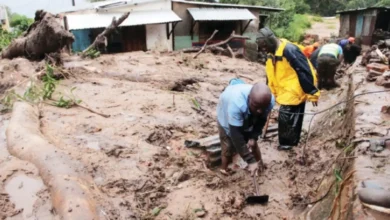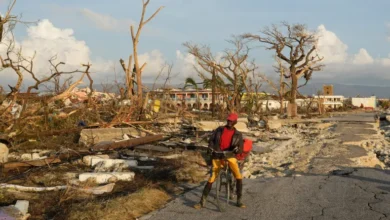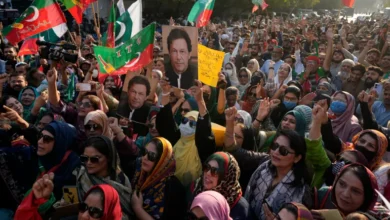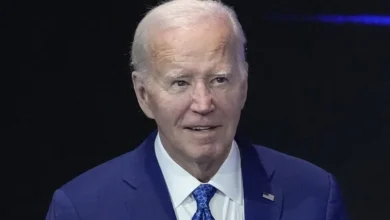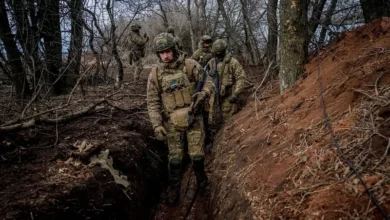Afghanistan is a US election issue. Will its refugees’ voices be heard?
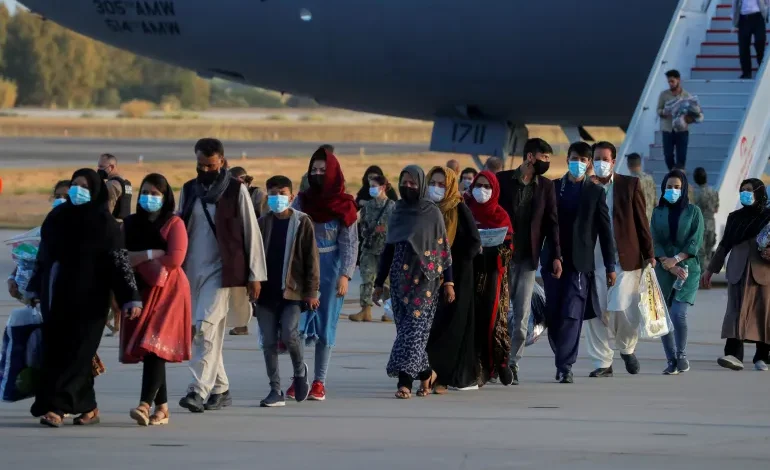
Nasrin will not be able to vote in the United States elections in November.
Still, the 27-year-old has a message for the presidential candidates, on behalf of Afghans like herself who fled as the US withdrew its troops from Afghanistan in August 2021.
“I really want them to hear us, especially to hear those voices that worked for the US,” Nasrin, who asked to use a pseudonym, told Al Jazeera.
Friday marks three years since the last American soldiers left Afghanistan, ending a two-decade military presence that began with the toppling of the Taliban government in 2001.
But the chaotic nature of the military withdrawal — and the swift reestablishment of Taliban rule — have cast a long shadow over US politics.
A source of ongoing bipartisan criticism, the withdrawal has become a prominent talking point in the 2024 presidential race, with Democrats and Republicans exchanging blame for the lives lost during the troops’ departure.
But Afghans like Nasrin say there is an important perspective lost in the election-year sparring: theirs.
“This election is not only important for America. It’s also important for Afghans,” said Nasrin, who lives in the San Francisco Bay Area in California.“For Afghans who immigrated here and for Afghans in Afghanistan … especially the women, this election will have a huge impact.”
Two parties, one controversy
What happened in 2021 is a story that embroils the central players in this year’s presidential race.
In 2020, the administration of Republican President Donald Trump reached a controversial agreement with the Taliban to withdraw all US forces from Afghanistan within 14 months.
A few months later, Trump lost his bid for re-election. His successor, Democratic President Joe Biden, oversaw a mad-dash evacuation of US citizens, coalition allies and tens of thousands of vulnerable Afghans as the deadline loomed.
By August 2021, the Taliban had swept across the country in a lightning offensive, reclaiming its former power. Its forces entered the Afghan capital Kabul on August 15. The last US plane flew out of the city on August 30.
In those final days, a bomb attack killed about 170 Afghans hoping to enter the airport, as well as 13 members of the US military.
Government investigators have blamed the administrations of both Biden and Trump for the chaotic situation: Trump for reaching an agreement seen as favouring the Taliban and Biden for moving forward with the plan without putting in safeguards to stop the Taliban.
Trump has also faced criticism for limiting the pathways for Afghans to escape to the US.
He is now, once again, the Republican candidate for president. Meanwhile, Biden’s vice president, Kamala Harris, is heading the Democratic ticket.
A lingering failure
But advocates say both parties must still confront an enduring dilemma: how to protect the hundreds of thousands of Afghans who fear repression under the Taliban.
Many who were left behind are considered likely targets for the Taliban, especially if they worked for the US military or the US-backed government.
Even among those who were evacuated, many have been left in perpetual uncertainty, with no clear path to US residency or citizenship. Others have found the legal pathways to the US too narrow and have sought more dangerous routes to enter the country.
For her part, Nasrin said she worked as an interpreter for the US embassy in Kabul.
After fleeing, she was able to become a US resident through a “Special Immigrant Visa” (SIV) programme designated for Afghans who worked for the US government.
Another evacuee, who asked to be identified only as Nazanin, fled Kabul on an evacuation flight with her 16-year-old sister following the Taliban’s rise.
She has since been granted asylum in the US, but she said she sees only broken promises from both parties as many other Afghans both in the US and in Afghanistan have been left in the lurch.
“I don’t think Afghan voices are being heard by politicians,” she told Al Jazeera.
“My message to the presidential candidates is that you do not represent the majority of the refugee society or Americans that I know or see their perspective on social media platforms and that your false promises are noted.”
Inadequate immigration pathways
Arash Azizzada — the executive director of Afghans for a Better Tomorrow, an advocacy group — said members of the Afghan community in the US, like him, feel a “sense of anger and disappointment” this election season “when we look at both candidates”.
“We are feeling pretty invisible this election season,” he added.
Azizzada’s group has spent the last three years pushing for more immigration pathways for those fleeing the Taliban, including an increase in special visas for Afghans who worked directly with the US and pathways to permanent residency for other evacuees.





